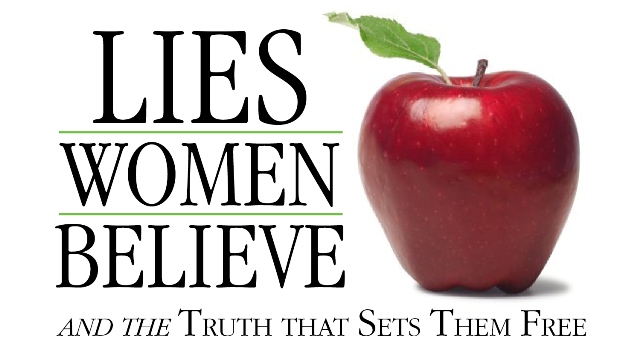So yesterday, a blog post at The Transformed Wife started floating through my feed– the author, Lori Alexander, titled it “Men Prefer Debt-Free Virgins without Tattoos.” Multiple people tagged me in the comments, asking if I would write a response and honestly I wasn’t sure I would. When Lori gave it that title, she did it deliberately to provoke a reaction (which she may now regret, she’s deleting hundreds of comments and wrote a post complaining that she’s being “slandered“), and I didn’t want her goad to be successful.
Today, though, I spent a lot of time digging through the comments (a few of which have been a joy let me tell you. Maybe she is only deleting “hate-filled” comments from the side that disagrees with her, but she seems plenty comfortable leaving up the “hate-filled” comments that agree with her), and I realized that a lot of people are generally misunderstanding what makes this particular blog post so bad. A lot of the commenters have pointed out that they have tattoos and weren’t a virgin and their husbands seem to “prefer” them just fine, and that misses the point.
When Lori Alexander says “Debt-Free Virgins without Tattoos,” the post makes it clear that she’s pointing to those items as indicative of what she sees is a larger social problem: women who aren’t utterly dependent on their husbands.
My experience growing up in complementarianism, all my research over the last few years, all the review series I’ve done on books like Captivating, Real Marriage, and Fascinating Womanhood points to one thing: complementarianism is intended to render women helpless and strip them of their autonomy. The ultimate goal for people like Lori Alexander is that women should be universally and totally dependent on their male spouse for their safety, shelter, livelihood, and purpose. Walking down the aisle as tattoo-less virgins is just a bonus– the main focus of the post is that women should not be college educated because it makes it more difficult for their husbands to control them.
There are many more reasons why Christian young women should carefully consider whether or not they go to college, especially if they want to be wives and mothers someday. Secular universities teach against the God of the Bible and His ways. It’s far from what God calls women to be and do: it teaches them to be independent, loud, and immodest instead of having meek and quiet spirits.
“The husband will need to take years teaching his wife the correct way to act, think, and live since college taught them every possible way that is wrong.” Sadly, most young Christian women wouldn’t listen to their husbands since they’ve not been taught to live in submission to their husbands.
Young women learn nothing about biblical womanhood or what it takes to run a home when they go to college. They don’t learn to serve others either. They learn the ways of the world instead.
Most girls have not read the Bible with their father (Ephesians 6:4) or husband to explain it to them (1 Corinthians 14:35). That part is important. Instead of learning it from their parents, they seek out books or movies on how to interpret the Bible which leads them down the wrong path.
Lori is heavily quoting from a letter she received and agreeing with it, and both she and the letter-writer spend hardly any time talking about tattoos or sexual purity. In fact, “tattoo” is only mentioned in the title, the first line, and the last line. Everything else is a discussion of why women shouldn’t be college-educated, and these are the reasons Lori gives:
- they will learn to be independent
- they won’t “listen to their husbands” and submit
- they won’t want to be their husband’s servant
- they’ll learn the “ways of the world”
- they could read books and interpret the Bible for themselves
Instead, Lori advocates that women should skip college, refuse a career, have as many “precious babies” as they can squeeze out– and remain as helpless and naïve as possible. That’s the image she’s trying to evoke by using “virgin without tattoos.” She wants women to be uncorrupted by the “ways of the world,” to be innocent; what she’s describing is the idea that a woman should reach marriage a blank slate for her husband to carve. They should have no ideas of their own, and no ability to cultivate ideas on their own. What they think about their life, the decisions that affect them, and their interpretation of the Bible should all come from their husband. This is the definition of “biblical submission” that Lori wants Christian women to adapt: Think what your husband tells you to think. Do what your husband tells you to do.
Lori is absolutely correct that a college education will interfere with this goal. When I decided to go to college against the express teaching of my church, nearly everyone I knew had a fit. The pastor preached messages about it, I got Sunday school lessons dedicated to it, my best friend gave me pamphlets for “college level homemaking courses.” They all told me exactly what Lori is telling her readers: if you go to college, you won’t be able to be a godly keeper at home.
Lori is right. My church was right.
Even though I went to a hard-right fundamentalist Christian college, I still encountered independent women who had careers. Many of my instructors were women– a few were even unmarried women who lived on their own! I met other women students who wanted a career and had no intention of ever having kids. I read books. I debated classmates. I learned to formulate my own opinions and argue for what I believed in (even if I would later abandon all those arguments). I went to PCC intending to get a music degree so I could teach from home and still be a godly wife. By the time I graduated I was going to graduate school so I could move to New York and become an editor for Tor Books with no spouse-type prospects in sight.
Now I’m getting a tattoo this Christmas, had sex with my partner before we got married, and best of all, I tell him what to think about the Bible thanks to the fancy seminary degree I’ll be getting this spring. I’m all of Lori’s worst fears made flesh: ex-fundamentalist, ex-Stay-at-Home-Daughter, ex-complementarian, ex-homeschool; now pro-choice, queer, and feminist.
And I’m going to spend the rest of my life fighting against every Lori Alexander I meet.










